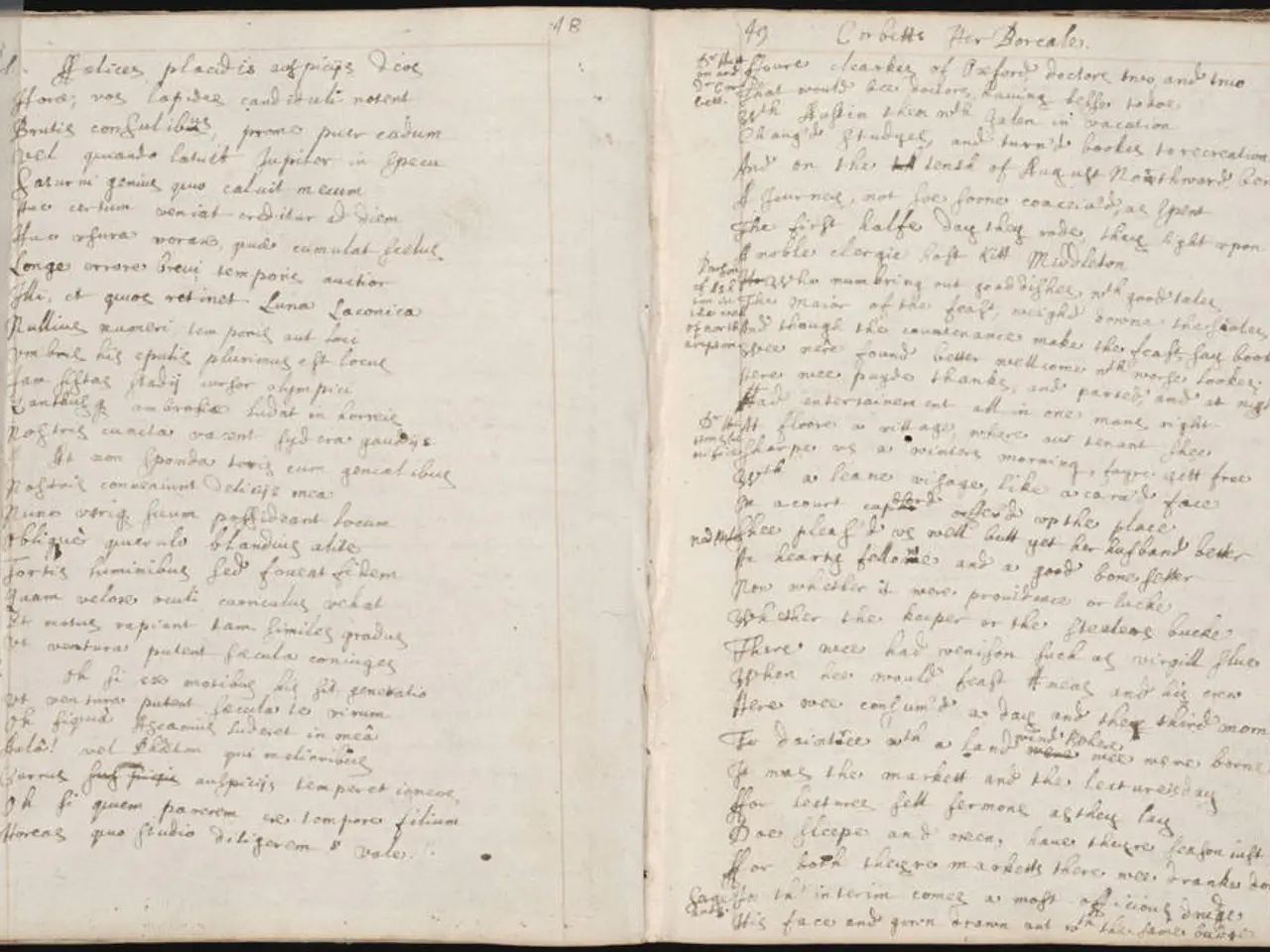Unveiled a century after his demise, the prolific author, Mark Twain, continues to captivate with his latest release.
Mark Twain's autobiography, a unique literary gem, has finally seen the light of day a century after the author's passing. The publication of this highly anticipated work, which Twain himself instructed to be withheld for a century, offers a rare and intimate glimpse into the life and mind of one of America's greatest literary figures.
Twain began dictating his autobiography in 1870, but the project was repeatedly paused and resumed over his lifetime. Unlike traditional autobiographies, Twain's work is a collection of ruminations and thoughts presented in an unconventional format, skipping around rather than telling a straight story from birth until death.
The autobiography's long embargo, combined with copyright laws, meant it was not released until 2010, a century after Twain's death. This delay has only added to the work's intrigue and historical significance. The 650,000-word manuscript is expected to be published in three volumes, providing readers with a comprehensive exploration of Twain's life, career, and the world around him.
One of the most interesting aspects of the autobiography is Twain's candid reflections on the world of his time. He expresses his disappointment with the nation's Christianity, stating it had become a shell, a sham, and a hypocrisy. Twain also criticises the McKinleys, Roosevelts, and Jay Gould's disciples for transforming the American people from a nation with high ideals to one that is cold, indifferent, and lacking in sympathy for oppressed peoples.
Another notable aspect of the autobiography is Twain's interactions with the Russian revolutionary Tchaykoffsky. Three days before their meeting, Tchaykoffsky was brought to Twain by his neighbour. However, Twain expressed doubt about the success of Tchaykoffsky's mission to arouse sympathy in the United States, citing the country's transformation and loss of ideals.
The autobiography also reveals Twain's raw, stunned heart-break at his daughter Suzie's sudden death. Additionally, Twain mentions his disapproval of the peace between Russia and Japan, brokered by President Roosevelt, stating that it postponed the Russian nation's imminent liberation from its age-long chains indefinitely.
Despite its unconventional structure, the autobiography offers a deeply personal and revealing document, distinct from Twain's novels and public persona. It is a testament to Twain's unique voice and perspective, making it an extraordinary literary and historical artifact.
References: [1] The New York Times, "Mark Twain's Autobiography, 100 Years in the Making", 2010 [2] The Guardian, "Mark Twain's Autobiography: The Making of a Masterpiece", 2010
- The publication of Mark Twain's autobiography, a 650,000-word manuscript expected to be published in three volumes, has generated significant news, offering readers an intimate look into Twain's views on various topics, including climate, economics, and politics.
- In his autobiography, Twain expresses his disapproval of the peace between Russia and Japan, brokered by President Roosevelt, claiming it postponed the Russian nation's imminent liberation from its age-long chains indefinitely.
- The autobiography's discussion of Twain's interactions with celebrities, such as Russian revolutionary Tchaykoffsky, and his raw, stunned heart-break at his daughter Suzie's sudden death, adds to its historical and literary significance, setting it apart from his novels and public persona.







